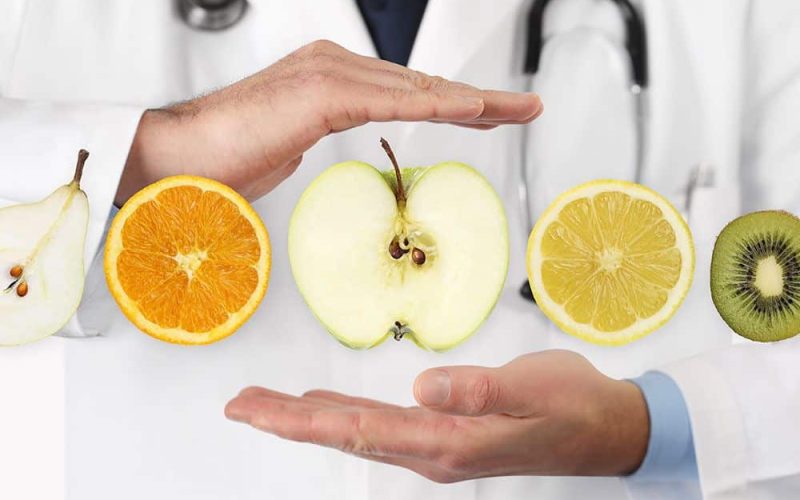It’s not so rare for people to conclude that Nutritionists and Dietitians do the same thing or are the same people.
However, the truth is that these are two very different professions in terms of education, qualifications, and the day-to-day roles that the professionals play.
We will start by taking a quick look at what dietitians do and how to you can become a dietitian. Once that’s over, we’ll look at the same factors for nutritionists.
What is the job of a Dietitian?
Dietitians do not just follow the latest diet trends and then make standardized recommendations to their clients or patients.
Instead, they take the time to develop diet and nutrition plans tailored to a person’s objectives or needs according to their health requirements.
However, while dietitians may work with individual clients; they may also work with stakeholders within an industry to ensure that the best health and nutrition practices are being adhered to.
Dietitians may help to improve the health of people by working with:
- Doctors: to help promote healthy eating habits of individuals who have complex health challenges
- Policymakers: to aid the government at every level in creating health strategies for the population
- Industry leaders: they help these people to consult on food sustainability, food systems, food service management, production, and even marketing
- Market researchers: dietitians help these people research to understand food science better
- Educators such as school teachers: they work with teachers to teach students about the profession of a Dietitian.
But what exactly do dietitians do in their everyday roles?
Dietitians are known to use their training in food science and counseling to carry out the following duties:
- Help people make healthy and safe food choices
- Influence policy developments that are food-related
- Educate people, the government, industries, and education facilities on nutrition programs
- Help both public and private establishments to manage the best quality of food services.
- Dietitians conduct nutrition research
- Dietitians create diet plans for people with medical conditions such as diabetes, cancer, heart disease, allergies, as well as obesity
- Provide advice and education for complex nutritional requirements like harmful nutrients, intravenous feeding, dietary supplements, diet and drug interactions, food safety storage, and more.
How you can become a Registered Dietitian (RD)
The two terms “Dietitian” and “Registered Dietitian” are titles that are protected across various parts of the world.
This means that before an individual can use the term Dietitian or get the title of a Registered Dietitian, they need to register with a specific dietetic regulatory body in whatever province where they practice.
In Ontario, the provincial regulatory body is the Ontario College of Dietitians. For a person to become a Registered Dietitian, the requirements below must first be completed:
- A first degree in human nutrition and dietetics from any program that has been accredited by the Partnership for Dietetic Education and Practice (PDEP)
- Not less than 1250 hours of supervised hands-on experience in disease management, counseling, population health, as well as food systems
- The completion of the Dietetic Registration Examination in your country
- Masters Degrees and PhDs are often optional, so they are not always a requirement
What are the duties of a Nutritionist?
Unlike Dietitians that who are work with anyone or organization, Nutritionists mainly have to work with individuals.
As a food and nutrition expert, Nutritionists advise individuals on how to live a healthy lifestyle as well as how to achieve health-related goals.
Below are the duties that a nutritionists perform:
- Develop an exercise and diet plan for specific clients
- Support clients through frequent meetings
- Track a clients’ progress and also motivate individuals to stay on track with diet plans
- Coordinate and take charge of a group or private cooking classes
- Promote nutrition and health by giving presentations and lessons about the importance of top food nutrition
- Assess people’s overall health, including their sleeping habits
How to Become a Nutritionist

Individuals who choose to refer to themselves as Nutritionists may have various levels of education – and may sometimes may have no nutritional background or education at all.
This is because no country has a regulatory body governing titles such as:
- Health Coach
- Nutritionist
- Registered Nutritionist
- Nutrition Specialist
- Wellness Coach
There are a few cases where the titles of Registered Nutritionists and Nutritionists are protected, for example, in Alberta, Quebec, and Nova Scotia, but these are the only few exceptions.
You may notice individuals with trademarked titles like Registered Holistic Nutritionist (RHN); however, it is good to know that these titles do not indicate that person is a regulated medical or health professional.
So, how does a person become a Nutritionist?
You can take a college program such as the Nutrition and Healthy Lifestyle Program, or the food and nutrition program offered at various colleges around the world.
You can also do your own readings and take exams online, or you can simply do nothing at all. The significant difference between Dietitians and Nutritionists is that Nutritionists are never held accountable by any regulatory body, so anyone can take on the Nutritionist title.
However, if you are looking to become a Nutritionist, it is best that you gain as much hands-on experience and education as possible.
Even though there are no nutritionists’ regulations, it does not mean that they do not offer sound advice. A couple of Nutritionists may indeed have extensive education in nutrition and diet.
Some of them may even have bachelor’s degrees, just like Dietitians do. However, for people to refer to themselves as Nutritionists, it is not mandatory that they get an education most of the time.
The above are the significant ways to tell the difference between a dietitian and a nutritionist. If you have any questions about how to become a dietitian or nutritionist knows your country of residence, we suggest that you carry out a careful country-specific study to have you get the correct information you need.
There are also several courses online that you may consider if you need to study nutrition.







